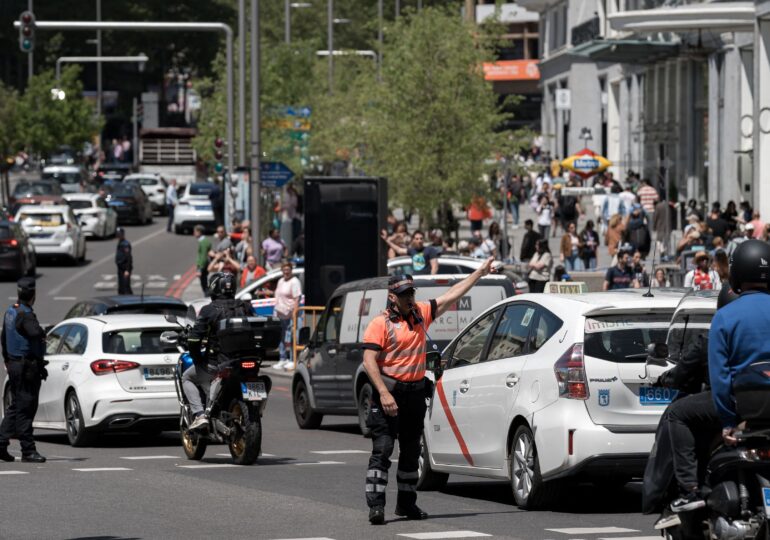A race against time is underway to determine what caused the power outage in Spain and Portugal on Monday, leaving millions of people without access to modern basic necessities.
The response will have serious consequences for both countries and for the entire Europe.
The European Union has long been pressuring the Iberian Peninsula - which has long operated as an "energy island" within the bloc - to better connect to the continent's electricity grids. As of Monday, experts have begun debating whether these connections could have prevented the massive power outages - or, conversely, exposed more countries to the risk of chain effects.
Throughout the day, there were concerns about the possibility that the power outages could be the result of a cyber attack on Europe - although no evidence has emerged to support this hypothesis.
Politico explains what is known so far and what can be expected next.
What Happened?
The power outage was caused by a "very strong oscillation in the electricity grid" that caused Spain's electricity system to "disconnect from the European system and collapse the Iberian electricity network at 12:38," according to Eduardo Prieto, director of the Spanish operator Red Eléctrica.
The Portuguese network operator REN stated that "extreme temperature variations" in Spain produced unexpected fluctuations on high-voltage lines. These led to the loss of synchronization in parts of the network, "causing successive disruptions in the interconnected European network."
Authorities in both countries have avoided speculating on the causes of the system imbalance.
"We do not have conclusive information about the causes and I urge the public not to speculate," said Spanish Prime Minister Pedro Sánchez, adding that the government is analyzing every possible factor that could have contributed to the outage.
Why Does It Take So Long to Restore Power?
Restoring power supply in Spain and Portugal has not been an easy task.
According to Leonardo Meeus, a professor specializing in electrical systems at the European University Institute, network operators must follow an "extremely complicated technical process" to restart the system.
Both countries need to restore power "step by step," starting initially from special generators, such as hydroelectric pumps.
Neighboring countries also help: the French operator RTE provided 700 megawatts of energy to Spain a few hours after the power outage. Power supply was largely restored in the northern and southern regions of the Iberian Peninsula by the end of the afternoon, thanks to the energy supplied by France and Morocco.
"Energy systems are connected through 'interconnectors'," explained Solomon Brown, a professor of energy systems at the University of Sheffield. "This means there is interdependence between networks, but also that they need to be restarted separately."
"As the two networks collapsed, they have to be gradually powered up again, bringing essential synchronized generators online with consumers, expanding the network step by step, until fully reconnecting to external networks," he added.
Why Are Electric Networks Interconnected?
Spain and Portugal have closely linked electrical systems, but with few cross-border connections to France and the rest of the EU.
The European Commission has long been trying to change this, strongly encouraging the construction of more interconnections to improve energy security and facilitate energy flows. Madrid, Lisbon, and Paris have repeatedly expressed their support for this plan, but progress has been slow.
Although Spain and France are currently working on a new connection in the Basque Country, the EU Agency for the Cooperation of Energy Regulators warned last year that not enough transport capacity had been released, despite legal obligations.
It remains unclear whether more connections would have reduced the impact of the power outage.
On one hand, more cross-border links could have strengthened Spain's capacity to balance energy supply and demand and to import electricity, said Pratheeksha Ramdas, a senior analyst at Rystad. Madrid's current limited ability to quickly exchange energy with France "restricts the ability to react quickly in case of large-scale disruptions."
On the other hand, "greater connectivity could increase the risk of propagating frequency instability to neighboring systems," she added, creating a potential domino effect of power outages in other European countries.
Was It a Cyber Attack?
In Spain, concerns were evident. A student leaving a university in Barcelona was heard asking, "Is it a cyber attack? A terrorist attack?"
- Major Cyber Attack on Orange, Including in Romania. Hackers Allegedly Stole 4.5 TB of Sensitive Data
Spain's opposition to Israel's war in Gaza and its support for Ukraine against Russian aggression have made it a prime target for cyber attacks, fueling speculation.
However, in Brussels, the European Commission's Executive Vice President Teresa Ribera seemed to dismiss this hypothesis, stating that "there is nothing to indicate sabotage or a cyber attack."
In 2015, hackers linked to Russia caused a major power outage in Ukraine. But the collapse of the electricity grids of two EU countries would require a much more complex technical effort and extremely serious geopolitical implications.
Why Is Green Energy Being Discussed?
Spain and Portugal are leaders in green energy in the EU and, before the outage, powered over 80% of their electricity consumption from renewable sources.
Experts had previously warned that the rapid expansion of wind and solar energy puts additional pressure on the Spanish grid, which needs modernization to manage the record volumes of intermittent energy.
However, green energy was not to blame for Monday's power outage, clarified Meeus, emphasizing that the EU has imposed strict rules in recent years to prevent the unsafe disconnection of renewable energy producers from the system.
"The nature and scale of the power outage make it unlikely that the volume of renewable energy was the cause," added Daniel Muir, a senior energy analyst at S&P Global.
"There was enough conventional energy available in the network - nuclear, hydro, cogeneration, and thermal - before the event and available to the operator," he said.

